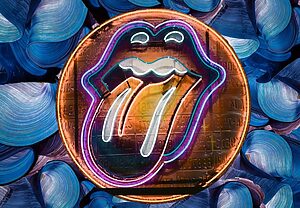The Essential Ranking of David Bowie’s Most Influential Albums
David Bowie, the iconic British musician and actor, left an indelible mark on the world of music. With a career spanning over five decades, Bowie constantly reinvented himself, pushing boundaries and challenging conventional norms. From his debut in the 1960s to his final album released shortly before his death in 2016, Bowie’s discography is a testament to his artistic genius. Here, we rank his most influential albums in reverse order:
10. “Blackstar” (2016)
Released just two days before Bowie’s death, “Blackstar” serves as a hauntingly beautiful swan song. This experimental jazz-infused album showcases Bowie’s willingness to take risks even in his final years. With its cryptic lyrics and atmospheric soundscapes, “Blackstar” is a testament to Bowie’s creativity and ability to captivate audiences till the very end.
9. “Diamond Dogs” (1974)
Combining elements of glam rock, soul, and funk, “Diamond Dogs” is a dystopian concept album that explores themes of post-apocalyptic society and rebellion. Bowie’s theatrical vocals and elaborate storytelling make this album a standout in his discography. Tracks like “Rebel Rebel” and the title track have become iconic anthems, solidifying Bowie’s status as a boundary-pushing artist.
8. “Scary Monsters (and Super Creeps)” (1980)
Considered a return to form after Bowie’s experimental phase in the late 1970s, “Scary Monsters” is a blend of new wave and art rock. The album features the popular singles “Ashes to Ashes” and “Fashion” and showcases Bowie’s ability to reinvent himself while maintaining his distinctive sound. With its edgy lyrics and innovative production, “Scary Monsters” remains a fan favorite.
7. “Aladdin Sane” (1973)
Building upon the success of “The Rise and Fall of Ziggy Stardust and the Spiders from Mars,” “Aladdin Sane” further solidified Bowie’s status as a rock icon. The album features the unforgettable track “Jean Genie” and explores themes of fame, mental instability, and the allure of American culture. With its blend of glam, rock, and avant-garde influences, “Aladdin Sane” remains one of Bowie’s most influential works.
6. “Hunky Dory” (1971)
“Hunky Dory” marks a transitional period in Bowie’s career, showcasing his songwriting prowess and versatility. This introspective album features the timeless classics “Changes” and “Life on Mars?” and explores themes of identity, fame, and personal reflection. With its eclectic mix of genres ranging from folk to glam rock, “Hunky Dory” is a testament to Bowie’s ability to adapt and evolve.
5. “Young Americans” (1975)
Blending soul, funk, and R&B influences, “Young Americans” showcases Bowie’s artistic versatility. The album’s title track became a chart-topping hit, while tracks like “Fame” (co-written with John Lennon) and “Golden Years” further demonstrate Bowie’s ability to create catchy, yet thought-provoking music. “Young Americans” marked a significant departure from Bowie’s previous sound and solidified his status as a musical chameleon.
4. “Low” (1977)
Part of Bowie’s influential “Berlin Trilogy,” which also includes “Heroes” and “Lodger,” “Low” is a groundbreaking album that merged elements of avant-garde, electronic, and ambient music. Co-produced with Brian Eno, “Low” features instrumental experimentation, cryptic lyrics, and a sense of alienation. Bowie’s collaboration with Eno resulted in a seminal work that paved the way for future genres like post-punk and new wave.
3. “The Rise and Fall of Ziggy Stardust and the Spiders from Mars” (1972)
Regarded as one of the greatest albums in rock history, “Ziggy Stardust” introduced Bowie’s alter-ego, Ziggy Stardust, and catapulted him to stardom. The album follows the story of Ziggy, a rock star messiah, and explores themes of alienation, sexuality, and fame. Tracks like “Starman” and “Suffragette City” became anthems of a generation and solidified Bowie’s status as a cultural icon.
2. “Station to Station” (1976)
Widely considered one of Bowie’s most ambitious and influential works, “Station to Station” combines elements of funk, soul, and krautrock. The album’s title track is an epic masterpiece that showcases Bowie’s vocal range and experimental sound. With its enigmatic lyrics and innovative production techniques, “Station to Station” stands as a testament to Bowie’s creative brilliance.
1. “The Man Who Sold the World” (1970)
Often overlooked in favor of Bowie’s later works, “The Man Who Sold the World” is a dark and introspective album that laid the foundation for his future artistic endeavors. With its heavy guitar riffs and introspective lyrics, this album signaled a departure from Bowie’s earlier folk sound and showcased his willingness to experiment. The title track and “All the Madmen” are standout songs that epitomize Bowie’s ability to create hauntingly beautiful music.
In conclusion, David Bowie’s discography is a treasure trove of influential albums that shaped the world of music. Each release showcases Bowie’s ability to constantly reinvent himself and push boundaries. From the experimental sounds of “Blackstar” to the iconic anthems of “Ziggy Stardust,” Bowie’s albums continue to inspire and captivate audiences worldwide.

